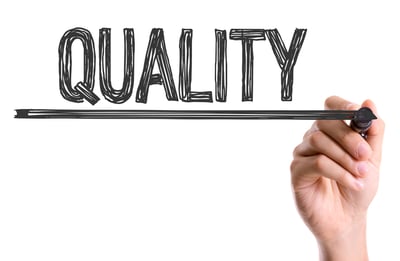How To Choose A Safe Co-Packer
I love cookies. I love to make them for my family, and I love to give them away to family and friends. I love to smell them cooking, and I even enjoy having the tools to make them – sturdy cookie sheets and parchment paper to make sure my cookies bake to perfection.
Good ingredients are essential to me – no cutting corners with quality. Back in the day, I have even been known to eat that delicious raw cookie dough, a bad idea, of course, now understanding the risk of salmonella contamination and food poisoning. Seriously, I want none of that!
Some friends have said, "oooh, these cookies are so good," you should sell these! You should make lots of cookies and sell them online! People would love these. You could mass produce these and make a bundle. You could ship them all over the country! "
While I always welcome these kind words and accolades, I often have questions about the reality of such a dream. I often ponder questions such as
- Could this work? That would be so awesome! But how?
- Could I get some assistance and have my cookies made and shipped to cookie lovers everywhere?
- Whom could I trust to get it right?
- How do I know that they are using suitable equipment and good ingredients?
- How will I know that the batter is handled correctly?
- What about contamination?
- Will they keep their kitchen clean?
- Will they follow my recipe and packaging instructions?
- Whom can I trust?
Of course, the simple answer to that last question is a co-packer. Why?
Co-packers are set up to handle these challenges. They can help your vision become a reality. They can mass-produce and save you lots of time. And most importantly, they can help you keep your products and customers safe.
But, not all co-packers are the same. When it comes to safety, some are better than others. So, how do you choose a safe contract packaging company?
While Industrial Packaging may or may not be the right contract packaging company for your business, we can help you understand how to choose a safe co-packer.
In this article, we will walk you through the required steps to choose a safe contract packaging company.
Contract Packaging: Safety First!
There are many items of consideration to take stock of when you are thinking about entering into a relationship with a co-packer. But, first and foremost, it is always safety first.
To understand what types of questions you should be asking your co-packer regarding food safety protocols, we will start with a question commonly asked by food inspectors.
- Does your co-packer have annual 3rd party audits? - The answer should be yes. This needs to be a requirement.
A third-party audit is conducted by an audit organization independent of the manufacturing or packaging company and the customer. Because they are independent, there is no conflict of interest, allowing for an unbiased assessment.
Ask your co-packer to see the most recent audit report (this should be done annually) and ask to see the audit's required corrective actions. Audits are scored. Make sure the score is considered acceptable and passing. This report will give you a good insight into what is happening in the plant.
Inspecting Your Potential Contract Packaging Partner
You will want to tour the manufacturing plant and bring along a couple of people you can trust who understand food safety and quality. Look for evidence of cleanliness in the facility. Are the floors swept? Are there debris, clutter, and dust in the production areas? Is the trash overflowing?
How about the employees? Do you observe handwashing before the start of work or after lunch? Are they wearing appropriate clean clothing or uniforms? Do they wear gloves, hairnets, or beard nets? These items are essential for food contact activities.
Are bathrooms stocked with soap and paper towels? Is there hot water in the sinks? Employees need to have GMPs (Good Manufacturing Practices) if they are handling your products.
Looking For A Co-Packer?

Food Safety For Contract Packaging
To reiterate, the number one item of consideration when working with a contract packaging partner is safety. This is especially true when dealing with food products. When working to identify the right co-packer for your business, you will want to keep safety front of mind.
Food Safety And Packaging Equipment
Let's take a look at the equipment that your product will be running on. You will want to see this piece of machinery in action rather than hear a story about it. Imagine your product traveling through this machine as you watch it run. What parts of the device are touching your product?
These are known as food contact surfaces. Are they in good repair, or do they have tape or wires holding them together? These are considered temporary repairs – not intended to be a permanent fix because they could break off and go into the product.
No one wants foreign material in their product! A temporary fix is also hard to clean and could become a source of bacteria or contamination.
Speaking of foreign material - let's see what methods are in place to prevent other foreign materials from getting into your product. I am talking about things like glass or metal. Look up what kind of light bulbs your co-packer is using. They should be shatter-resistant or have a shield or sleeve, so the glass will be contained if they break.
Does your potential co-packer have a metal detector or X-Ray machine on the line that each packaged product passes through? Is it turned on? Is it working? Could the machine operator do a test for us to see it in action? Why not!
Food Safety And Sanitation
How often are the production lines cleaned? How do they know it has been effectively cleaned? What chemicals are used for cleaning and sanitation, and are they approved for food contact surfaces? The chemical labels should have the answer. Is testing done to verify the cleanliness?
How is the pest control program? Do you see evidence of traps along exterior facing walls? Are there any holes in the building with light coming through? What about doors left open so that mice, insects, or other unwelcome pests could enter? A mouse can get into the building with just ¼ inch opening (about the width of a pencil). Truth!

Quality Protocols For Contract Packaging
It is so important to share your expectations with your co-packer. Please provide them with the specifications for your finished product. Let's say it's cookies - what size package, bag, or box do you want the cookies to be placed in? How many packaged per case? How many boxes per pallet? Are there temperature requirements for storage, or is it room temperature?
What do you want to be printed on the package? "Best by date"? "Guaranteed fresh by"? And, what is the shelf life? Do you prefer an adhesive pre-printed label applied to the packaged? Do you want a corrugated display created for the point of purchase sale?
How will they ensure that all of these dynamics are done with safety front and center?
So many options for your product! Be specific. You can even take a photo or make a video to communicate your expectations.
Know The People Behind Your Contract Packaging Company
When it comes to choosing a safe contract packaging company, you really must get to know the people behind the business. You will want to answer a few questions about the organization you are thinking of doing business with.
Better yet, you will want to ask them questions. For example, do they have a culture that focuses on food safety and quality? Are they responsive and easy to work with? Do they have core values, and do they live by them? Will this team of people protect your brand and all the people who love and trust your products and brand?
Your product is so important. Do not put it in the hands of just anyone. Make sure it is someone you can trust.
What Are The Benefits Of Contract Packaging For Your Company?
Suppose you are interested in learning more about how co-packers can help your business safely package your products. In that case, you will want to consider reading this companion article, Benefits Of Contract Packaging: Top 5 Reasons To Outsource Your Supply Chain.
This article will allow you to understand better the various ways in which a contract packaging company can help your business to be more efficient, more productive, and most importantly, safe.




